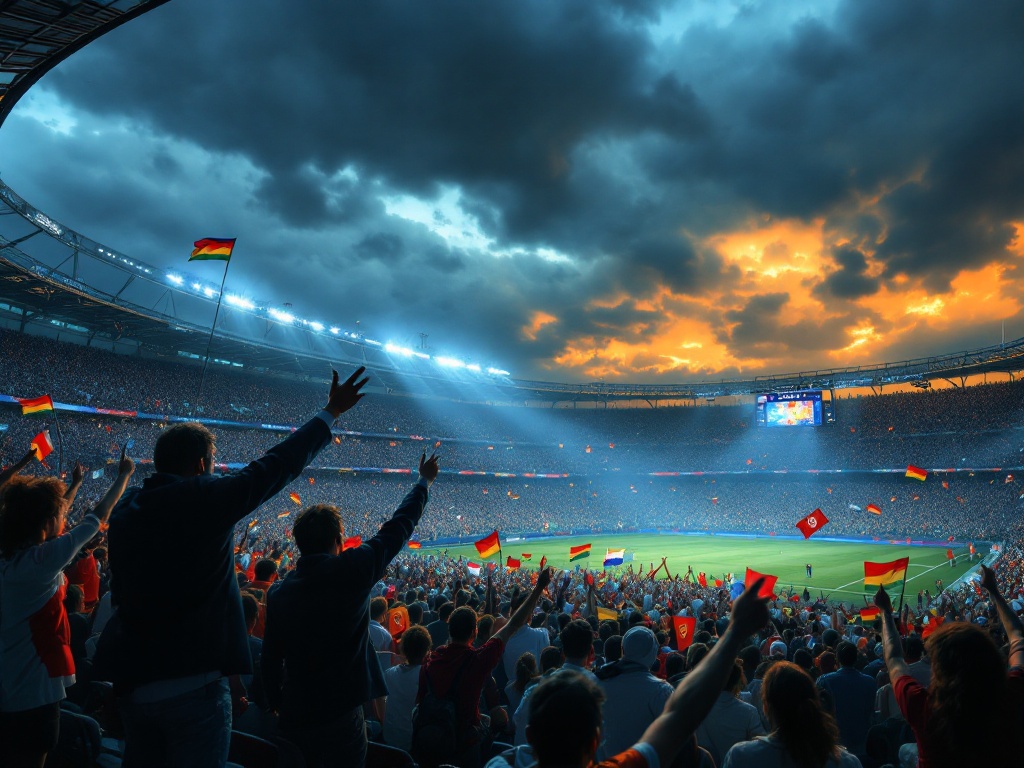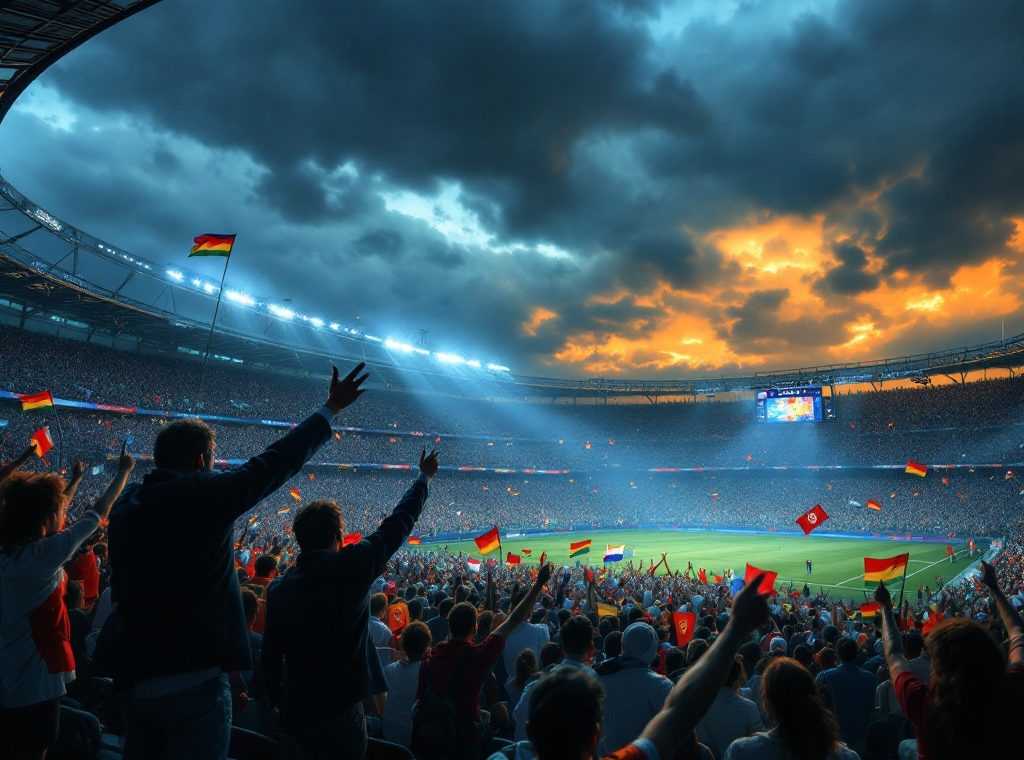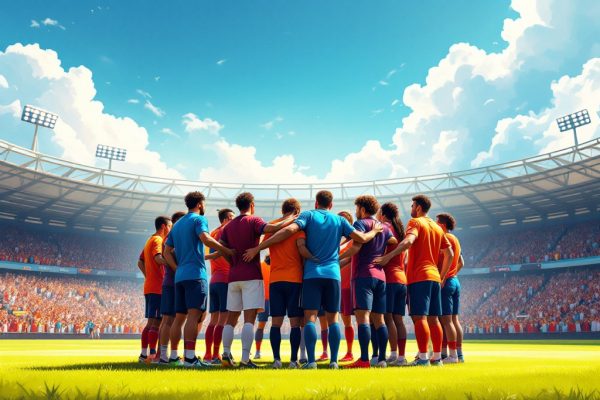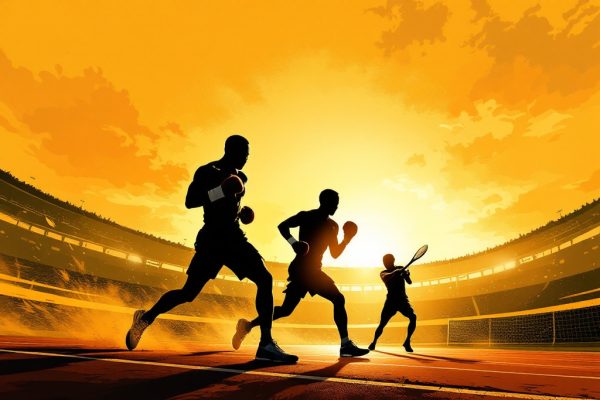What is Sportwashing and Why You Should Be Aware of It
Is your favorite team being used as a political pawn? Discover the deceptive world of “sportswashing,” where governments and organizations exploit the thrill of sports to hide human rights abuses and corruption. From Saudi Arabia’s investments in Formula 1 to the historical precedent of the 1936 Olympics, learn how this tactic works, its impact, and how you can fight back. Become an informed fan and athlete – read on to uncover the truth behind the spectacle.
Important information

- Sportswashing is the practice of using sports to improve a tarnished public image and divert attention from wrongdoing, such as human rights abuses.
- Governments, organizations, and even individual athletes can engage in sportswashing through hosting major events, sponsoring teams, or endorsements.
- While sportswashing seeks to enhance reputation and gain international acceptance, it risks backfiring and causing further reputational damage if exposed.
- Historical examples like the 1936 Berlin Olympics and modern cases like Saudi Arabia’s investments in sports illustrate sportswashing’s deceptive nature.
- Fans and athletes can combat sportswashing through boycotts, public pressure, and advocacy for worker’s rights and human rights.
What is Sportwashing?
Some organizations use sports to improve their public image, a practice called “sportswashing”. Governments and other groups sponsor popular sporting events to appear positive and often hide bad actions like human rights violations.
This tactic effectively distracts from their wrongdoings, using the popularity of sports to seem legitimate. Ultimately, sportswashing helps them avoid criticism and repair a damaged reputation.
Definition and Purpose
“Sportswashing” is a deceptive tactic employed by governments and organizations to mask wrongdoing. They exploit the excitement and popularity of sports to create a positive public image, often concealing unethical behavior like human rights abuses. This manipulative strategy diverts attention from serious issues, effectively legitimizing oppressive regimes by granting them an undeserved platform. It cynically exploits our love of sports as a distraction. Sportswashing serves several key purposes: it enhances reputations tarnished by wrongdoing, creates a false sense of legitimacy, and gains access to influential figures and lucrative markets. The practice often involves hosting major sporting events, sponsoring popular teams, or owning high-profile clubs. By associating themselves with the positive emotions surrounding sports, these entities attempt to deflect criticism and scrutiny. The public’s passion for sports is thus manipulated to serve a deceitful agenda.
Methods and Techniques
Some nations and groups use sports to improve their public image, a practice called sportswashing. They often host major events like the Olympics or World Cup. Acquiring or sponsoring popular teams, especially those with a global following, is another common tactic. Even individual high-profile athletes can be instrumental in these campaigns. Sportswashing aims to create a positive association between the thrill of competition and the sponsoring entity. This helps deflect negative publicity and repair a tarnished reputation.
Reputation Management Through Sportswashing
Some organizations, facing criticism for human rights abuses or corruption scandals, use sports to “sportswash” their image. By investing in sports, they create positive associations, deflecting negative attention and boosting their global standing. This can involve:
- hosting major events like the Olympics,
- sponsoring popular teams,
- endorsing famous athletes.
The aim is to project an image of normalcy and respectability, despite underlying issues. However, this practice raises ethical questions about exploiting sports for political gain, making sportswashing a complex issue with significant implications.
How Sportswashing Improves Reputation
Some organizations use “sportswashing” to improve their public image by associating themselves with the excitement and positive emotions of sports. This tactic diverts attention from negative publicity, creating a more favorable perception. Sportswashing can increase international acceptance, attract investments, and foster better relationships with other nations. However, this strategy is risky. If the public recognizes the ploy, the organization’s reputation could suffer further damage.
Benefits of Sportswashing
- enhanced public image,
- diversion from negative publicity,
- increased international acceptance.
Risks of Sportswashing
- potential for reputational damage if the public recognizes the ploy.
Reputation Laundering and Global Sporting Events
Several nations use global sporting events to improve their international image, a practice called reputation laundering. By hosting or sponsoring major competitions, these countries try to project a positive image globally.
Sports are inherently linked with positive values like fair play and teamwork. By associating with these ideals, countries try to reshape global perceptions and gain international acceptance.
However, this tactic often hides a more troubling agenda, diverting attention from human rights violations and internal political conflicts.
This strategy can influence public opinion, attract foreign investment, and potentially reduce international pressure, allowing them to avoid scrutiny of their domestic issues.
Examples of Sportswashing Around the World
Saudi Arabia’s investment in global sporting events, such as Formula 1 and golf tournaments, is a modern example of sportswashing. It uses these spectacles to project a progressive image, but critics argue this tactic distracts from the nation’s human rights record.
Nazi Germany used similar strategies during the 1936 Olympics, leveraging the games to promote its ideology. This practice persists today, drawing criticism as nations use sports to improve their global image despite controversies, such as those surrounding Saudi Arabia’s investments.
While these events aim to create a positive perception, they risk overshadowing important human rights discussions, echoing the historical precedent and potential problems of the 1936 Olympics.
Case Study: Saudi Arabia and Global Sporting Events
Saudi Arabia’s substantial investments in global sports, such as Formula 1 and major golf tournaments, are a prime example of sportswashing. By hosting these high-profile events, the kingdom aims to enhance its international image and deflect attention from its human rights record.
- This heavy spending on sponsorships and hosting duties is a clear attempt to improve global standing.
Critics, however, remain unconvinced, arguing that this strategy merely masks serious problems. These underlying issues persist, despite the kingdom’s efforts.
- Key human rights concerns include women’s rights issues and severe restrictions on freedom of expression.
Historical Examples and Modern Criticism
The 1936 Berlin Olympics, hosted by Nazi Germany, stands as a stark example of sportswashing. While the Nazi regime projected an image of peace and prosperity, it simultaneously persecuted Jews and other minorities.
Modern critics draw parallels to the 2022 FIFA World Cup in Qatar, citing human rights violations and worker exploitation during stadium construction. These events demonstrate how states use sporting events to deflect criticism and enhance their global image.
Spectacles like the Olympics and World Cup create a powerful diversion, shifting global attention away from negative press. However, these attempts often face intense scrutiny, and the truth ultimately emerges.
Why You Should Be Aware of Sportswashing
Authoritarian regimes exploit sporting events to conceal human rights violations. This political tactic, known as sportswashing, requires careful examination to understand their underlying motives and the ethical dilemmas associated with supporting such events. Sportswashing suppresses dissent by curtailing free speech and manufacturing a deceptive facade of positivity. Furthermore, these governments leverage sports to exert global political influence, wielding it as a form of soft power.
Human Rights Abuses and Authoritarian States
Authoritarian regimes utilize sportswashing to conceal human rights abuses. Hosting prominent sporting events and investing in popular teams cultivates a positive public image, masking the harsh realities of oppression.
This tactic restricts freedoms for athletes, journalists, and activists, especially limiting their expression. Sportswashing deflects international criticism, making it a dangerous strategy.
Impact on Freedom of Expression
Sportswashing disguises human rights violations, creating a diversion and silencing dissent. Fear of reprisal prevents journalists, athletes, and even fans from speaking out, fostering an environment of censorship that empowers authoritarian governments. We cannot remain silent. We must amplify the voices of those silenced and hold these regimes responsible. We must expose sportswashing and prevent it from succeeding.
Political Influence and Soft Power
Sportswashing is a potent tool of political influence, allowing nations to cultivate a positive global image through “soft power.” This carefully crafted narrative shapes international opinion. However, it also serves a darker purpose: deflecting attention from controversial actions. For instance, hosting a major sporting event generates positive press and distracts from potential human rights abuses. This presents a desirable, yet often misleading, façade to the world.
How Sportswashing Can Backfire
Sportswashing aims to improve a reputation, but it can backfire dramatically. Instead of creating positive PR, it can attract unwanted attention, causing fans and athletes to boycott events and triggering public outcry. This increased scrutiny can lead to media investigations, revealing the true intentions behind the sports investments and damaging the desired image. Ultimately, sportswashing can harm credibility and international relations, with unsuccessful attempts serving as warnings about the strategy’s risks and ineffectiveness.
Consequences and Negative Attention
Sportswashing can backfire rather than enhancing a reputation. It can generate negative press and intense scrutiny that undermines any potential benefits. This can lead to accusations of hypocrisy and further reputational damage, ultimately drawing attention to the very issues the practice attempts to hide.
Boycotts and Public Backlash
Public backlash against sportswashing manifests in several ways. Boycotts targeting events and sponsorships diminish financial gains and viewership. Protests and demonstrations at sporting events raise awareness of human rights abuses, often amplified by negative media coverage and social media campaigns. The reputations of those involved suffer as a result. Mounting public pressure leads sponsors and athletes to reconsider their participation. Ultimately, these actions hold organizations accountable, discouraging future sportswashing attempts and aiming to stop the practice of using sports to conceal abuses.
What Can Fans and Athletes Do?
Athletes and fans hold significant power in advocating for workers’ rights and combating sportswashing. Public pressure is crucial for holding the sports industry accountable. Athletes can leverage their platform to highlight labor rights issues and challenge exploitative practices. Fans can amplify these messages by boycotting events sponsored by unethical brands and supporting ethical sponsors. By working together, athletes and fans can create meaningful change and promote fairer labor standards within the sports industry.
Promoting Worker’s Rights and Activism
Fans and athletes can advocate for improved worker conditions at sporting events by raising awareness about exploitation. They can champion fair wages, safe workplaces, and support organizations dedicated to protecting workers’ rights. Protests, boycotts, and social media campaigns can amplify this message, pressuring organizations and governments to act. Athletes, with their influential platforms, can denounce worker exploitation and support labor movements. This encourages sponsors and fans to also take action. Human rights organizations and labor unions offer valuable resources and guidance that fans and athletes can utilize to create meaningful, positive change. Here’s how fans and athletes can collaborate to promote ethical labor practices:
Fans
- Raise awareness by sharing information about worker exploitation on social media and within your networks.
- Support ethical brands and sponsors that prioritize worker rights.
- Participate in peaceful protests and boycotts to pressure event organizers and sponsors.
- Donate to and volunteer with organizations dedicated to labor rights.
Athletes
- Use your platform to speak out against worker exploitation and advocate for fair labor practices.
- Support and collaborate with labor unions and human rights organizations.
- Engage with sponsors and brands, encouraging them to adopt ethical labor standards.
- Include worker rights clauses in endorsement contracts.
Engagement and Public Involvement
Fans and athletes play a crucial role in combating sportswashing. They can hold organizations accountable by leveraging tools like boycotts and public pressure campaigns. Advocating for workers’ rights and raising awareness about human rights abuses are also vital, promoting greater transparency. These actions contribute to discouraging sportswashing and empowering fans and athletes to effect positive change.
















